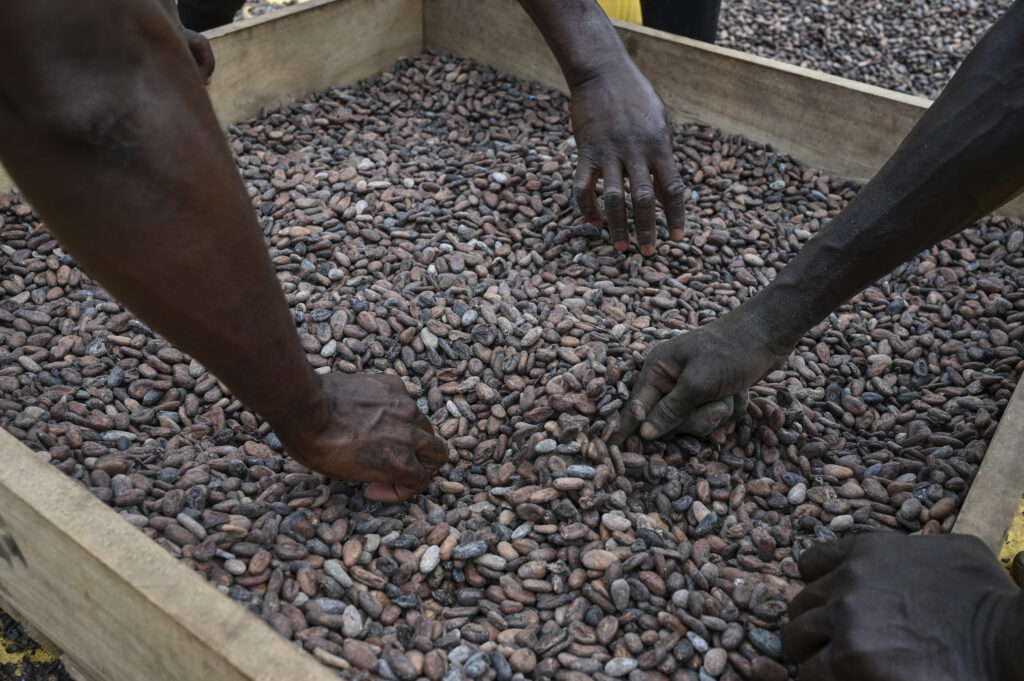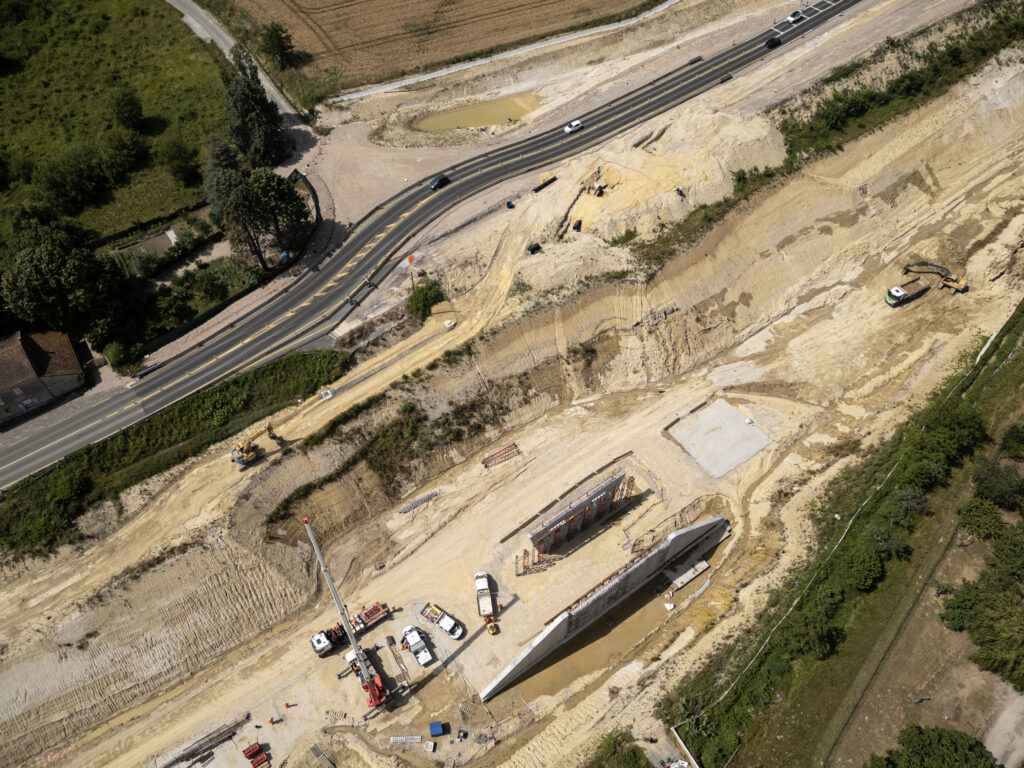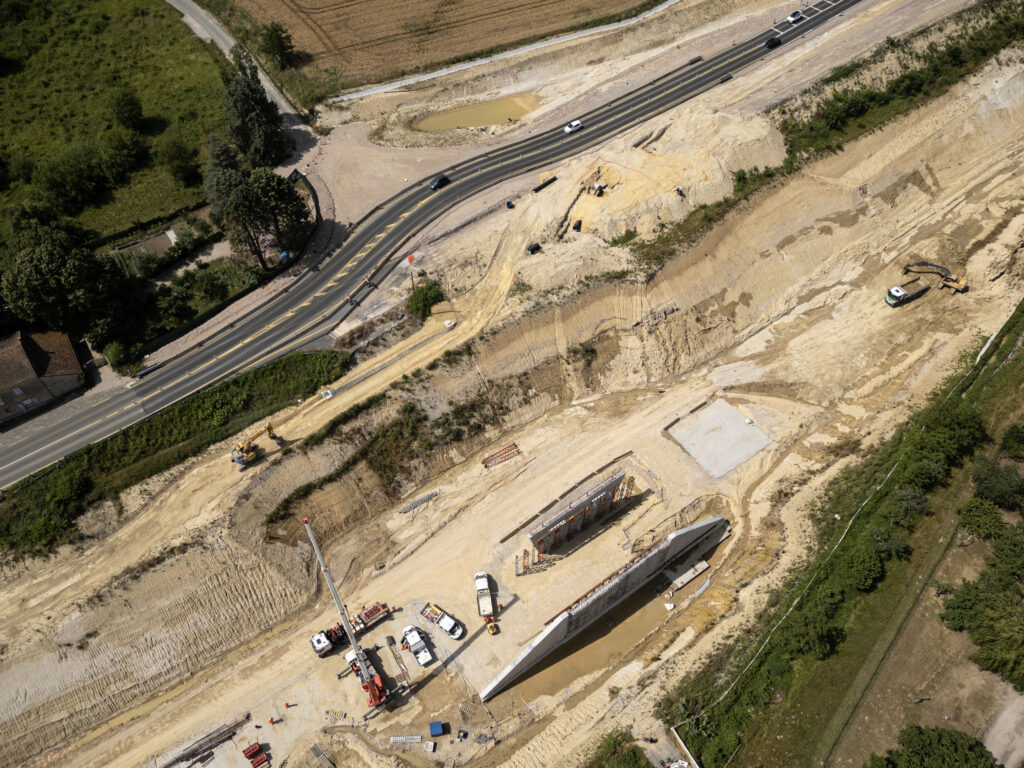Une loi pour garantir un avocat aux enfants placés ou protégés étudiée à l’Assemblée
Une proposition de loi visant à garantir un avocat à chaque enfant sous mesure d’assistance éducative sera débattue jeudi matin à l’Assemblée nationale, lors de la journée réservée aux propositions du Parti socialiste.Ces enfants sont, sur décision d’un juge, placés en familles d’accueil ou en foyers, ou suivis dans leur famille par des services sociaux. Environ 380.000 jeunes sont concernés, selon les données officielles.Ils “grandissent avec l’idée qu’ils ne comptent pour personne et qu’ils ne peuvent compter sur personne”, souligne la députée socialiste porteuse du texte, Ayda Hadizadeh, optimiste sur son adoption.Les avocats, indépendants des familles ou de l’Aide sociale à l’enfance (ASE), pourront à la fois “faire entendre la voix” de l’enfant, et “s’assurer que des violences n’adviennent pas” lorsque le juge ordonne un placement, sans se substituer au rôle de ce dernier, explique-t-elle. “Le juge, c’est le phare dans la nuit. L’avocat, c’est la veilleuse que l’enfant allume le soir quand il a peur du noir. Il peut l’appeler, il peut se rassurer”, défend-elle.La proposition de loi sera débattue alors que la révélation d’une vidéo d’un enfant tondu dans un foyer d’enfants placés à Paris a suscité l’émoi. “Tous les députés qui s’alarment ici du sort de cet enfant (…) seront-ils présents jeudi dans l’hémicycle pour voter”, a interrogé sur X Lyes Louffok, co-fondateur de l’association Comité de vigilance des enfants placés, qui soutient le texte.Actuellement, le juge peut demander la désignation d’un avocat “lorsque l’intérêt de l’enfant l’exige” et si ce dernier est “capable de discernement”.L’initiative socialiste a reçu le soutien du ministre de la Justice Gérald Darmanin et avait été adoptée en commission la semaine dernière, soutenue par la majorité des groupes. Le Rassemblement national et Les Républicains avaient dit s’abstenir, ces derniers pointant le risque de judiciarisation excessive et la charge financière entraînée (plus de 200 millions d’euros). Une autre proposition de loi concernant la protection des mineurs sera examinée dans la foulée jeudi. Elle vise à garantir que des mineurs suspectés d’être majeurs conservent l’accès aux services de protection de l’enfance lorsqu’ils formulent un recours.”Aujourd’hui en France, des enfants et des adolescents dorment seuls à la rue” le temps de ces recours, et “une part importante” sont finalement reconnus mineurs, il faut donc “une présomption de minorité”, avait martelé le député PS — et candidat à la mairie de Paris — Emmanuel Grégoire en commission, où son texte avait lui été rejeté.Autre initiative qui pourra faire polémique dans l’hémicycle jeudi: un texte pour renouveler automatiquement des titres de séjour longue durée pour les étrangers (cartes de séjour pluriannuelle ou carte de résident).
L’heure des réquisitions a sonné pour l’anesthésiste de Besançon
L’accusation est convaincue d’être face à un assassin en blouse blanche et entend bien en faire la démonstration: l’heure est aux réquisitions au procès de l’anesthésiste Frédéric Péchier, jugé à Besançon pour 30 empoisonnements, dont 12 mortels.Après trois mois de débats, parfois techniques, souvent émouvants, et trois jours de plaidoiries pendant lesquels une vingtaine d’avocats ont déposé à la barre la douleur des victimes et le traumatisme des soignants, la parole est donnée au ministère public.Christine de Curraize et Thérèse Brunisso, le duo qui porte l’accusation, ont deux jours pour convaincre les six jurés populaires et trois juges professionnels de la culpabilité de l’accusé de 53 ans, qui ne cesse de clamer son innocence.Pendant les débats, les deux femmes et la défense sont tombées d’accord sur un seul point: un empoisonneur a bien sévi à la clinique Saint-Vincent de Besançon entre 2008 et 2017.Après avoir soutenu pendant l’enquête que la plupart des cas étaient dus à des “erreurs médicales” de ses collègues ou à des aléas thérapeutiques, Frédéric Péchier a admis que parmi les 30 cas qui lui sont imputés, 12 étaient des empoisonnements, dont cinq mortels. Mais il l’a répété: ce criminel en blouse blanche, ce n’est pas lui.Au fil des audiences, les deux avocates générales ont bien tenté de le pousser dans ses retranchements, sans succès.”Personne ne m’a vu faire! On est dans un procès d’assises, il faut des preuves!”, s’est maladroitement défendu Frédéric Péchier lors de son premier interrogatoire.- Mobile incertain -Les deux femmes, qualifiées de “déesses de l’accusation” par un avocat des parties civiles, maîtrisent leur dossier jusqu’au bout des ongles.Les victimes? Des patients de 4 à 89 ans. Le lieu du crime? Deux cliniques privées de Besançon. L’arme? Des médicaments. Selon l’accusation, Frédéric Péchier a pollué des poches de perfusion avec du potassium, des anesthésiques locaux, de l’adrénaline ou encore de l’héparine, pour provoquer l’arrêt cardiaque de patients pris en charge par d’autres médecins anesthésistes et ainsi leur nuire par ricochet.Lors de ses échanges avec l’accusation, Frédéric Péchier s’est efforcé de rester calme et impassible, même si l’agacement perçait par moments. Il a même un temps décidé de “garder le silence” pour protester contre la tenue des débats.Une stratégie qui lui a valu les remontrances de Christine de Curraize, qui a fustigé une “attitude de petit garçon capricieux”.”Vous vous situez toujours au-dessus des autres et au-dessus des lois, M. Péchier”, a lancé l’avocate générale, qui travaille sur cette affaire depuis le début de l’enquête en janvier 2017.Au fil des audiences, le Dr Péchier, lui-même fils d’un anesthésiste et d’une infirmière anesthésiste, a maintenu le cap, soutenu par sa famille. Sa sœur, avocate, fait partie de son équipe de défense.Pour son avocat, Randall Schwerdorffer, qui plaidera l’acquittement à partir de lundi, le mobile d’une vengeance envers des collègues pour des motifs futiles ne tient pas.”Pour avoir des explications claires sur le passage à l’acte, il faut que le criminel s’explique”, a fait valoir Mme de Curraize.A ses côtés, sa collègue Thérèse Brunisso l’a reconnu: “On n’attend plus d’aveux”.Le verdict est attendu d’ici au 19 décembre.
L’heure des réquisitions a sonné pour l’anesthésiste de Besançon
L’accusation est convaincue d’être face à un assassin en blouse blanche et entend bien en faire la démonstration: l’heure est aux réquisitions au procès de l’anesthésiste Frédéric Péchier, jugé à Besançon pour 30 empoisonnements, dont 12 mortels.Après trois mois de débats, parfois techniques, souvent émouvants, et trois jours de plaidoiries pendant lesquels une vingtaine d’avocats ont déposé à la barre la douleur des victimes et le traumatisme des soignants, la parole est donnée au ministère public.Christine de Curraize et Thérèse Brunisso, le duo qui porte l’accusation, ont deux jours pour convaincre les six jurés populaires et trois juges professionnels de la culpabilité de l’accusé de 53 ans, qui ne cesse de clamer son innocence.Pendant les débats, les deux femmes et la défense sont tombées d’accord sur un seul point: un empoisonneur a bien sévi à la clinique Saint-Vincent de Besançon entre 2008 et 2017.Après avoir soutenu pendant l’enquête que la plupart des cas étaient dus à des “erreurs médicales” de ses collègues ou à des aléas thérapeutiques, Frédéric Péchier a admis que parmi les 30 cas qui lui sont imputés, 12 étaient des empoisonnements, dont cinq mortels. Mais il l’a répété: ce criminel en blouse blanche, ce n’est pas lui.Au fil des audiences, les deux avocates générales ont bien tenté de le pousser dans ses retranchements, sans succès.”Personne ne m’a vu faire! On est dans un procès d’assises, il faut des preuves!”, s’est maladroitement défendu Frédéric Péchier lors de son premier interrogatoire.- Mobile incertain -Les deux femmes, qualifiées de “déesses de l’accusation” par un avocat des parties civiles, maîtrisent leur dossier jusqu’au bout des ongles.Les victimes? Des patients de 4 à 89 ans. Le lieu du crime? Deux cliniques privées de Besançon. L’arme? Des médicaments. Selon l’accusation, Frédéric Péchier a pollué des poches de perfusion avec du potassium, des anesthésiques locaux, de l’adrénaline ou encore de l’héparine, pour provoquer l’arrêt cardiaque de patients pris en charge par d’autres médecins anesthésistes et ainsi leur nuire par ricochet.Lors de ses échanges avec l’accusation, Frédéric Péchier s’est efforcé de rester calme et impassible, même si l’agacement perçait par moments. Il a même un temps décidé de “garder le silence” pour protester contre la tenue des débats.Une stratégie qui lui a valu les remontrances de Christine de Curraize, qui a fustigé une “attitude de petit garçon capricieux”.”Vous vous situez toujours au-dessus des autres et au-dessus des lois, M. Péchier”, a lancé l’avocate générale, qui travaille sur cette affaire depuis le début de l’enquête en janvier 2017.Au fil des audiences, le Dr Péchier, lui-même fils d’un anesthésiste et d’une infirmière anesthésiste, a maintenu le cap, soutenu par sa famille. Sa sœur, avocate, fait partie de son équipe de défense.Pour son avocat, Randall Schwerdorffer, qui plaidera l’acquittement à partir de lundi, le mobile d’une vengeance envers des collègues pour des motifs futiles ne tient pas.”Pour avoir des explications claires sur le passage à l’acte, il faut que le criminel s’explique”, a fait valoir Mme de Curraize.A ses côtés, sa collègue Thérèse Brunisso l’a reconnu: “On n’attend plus d’aveux”.Le verdict est attendu d’ici au 19 décembre.
Chocolate prices high before Christmas despite cocoa fallThu, 11 Dec 2025 03:14:16 GMT
After soaring for nearly two years, cocoa prices dropped sharply in 2025. However, chocolate, in demand ahead of the festive holiday season, has seen prices rise.AFP examines the reasons for the divergence and the current state of the cocoa market.- West Africa at heart -Ivory Coast and Ghana are the world’s biggest suppliers of pods …
Chocolate prices high before Christmas despite cocoa fallThu, 11 Dec 2025 03:14:16 GMT Read More »
L’A69 devant la cour d’appel, audience cruciale pour l’avenir du chantier
La cour administrative d’appel de Toulouse se penche jeudi sur le chantier de l’autoroute A69, une étape décisive pour la construction de cette infrastructure contestée dont le rapporteur public a d’ores et déjà souhaité la poursuite.Ce magistrat dont la vocation est d’éclairer les décisions des juridictions administratives et dont l’avis est en général suivi, a estimé, dans ses conclusions, qu’il convenait de revenir sur la décision du tribunal administratif de Toulouse qui, le 27 février, avait annulé l’autorisation environnementale ayant permis le démarrage des travaux, en 2023.Le rapporteur public Frédéric Diard estime en effet que ce jugement du tribunal établissant “que le projet de liaison autoroutière entre Castres et Toulouse ne répond pas à une Raison impérative d’intérêt public majeur (RIIPM), n’est pas fondé”.Jeudi matin, il doit développer sa position dans une salle d’audience qui promet d’être comble, comme elle l’a été tout au long des différentes étapes procédurales de la longue bataille juridique autour de ce projet de 53 km de voie rapide, devenu depuis plusieurs années un symbole des luttes écologiques.- Opposants mobilisés -Un rassemblement des anti-A69 est attendu à partir de 08H30 devant les portes de la cour administrative d’appel alors qu’une dizaine d'”écureuils”, des militants écologistes suspendus à des arbres, ont pris place depuis mercredi dans des platanes faisant face à la juridiction.”Nous invitons les médias à venir écouter attentivement les motivations du rapporteur lors de l’audience”, a réagi le principal collectif d’opposants à l’A69, “La Voie est libre” (LVEL), après avoir pris connaissance de sa position.”Il doit nous donner une démonstration irréfutable du caractère vital de l’A69. N’en doutons pas”, a-t-il ironisé, alors que le collectif s’était indigné que M. Diard soit reconduit comme rapporteur public pour cette audience cruciale alors qu’il avait déjà pris position en faveur de l’A69 dans une première procédure liée à ce dossier.En mai dernier, il avait en effet souhaité que la cour administrative d’appel se prononce en faveur de la demande présentée par l’Etat et le concessionnaire Atosca d’un “sursis à exécution” du jugement du tribunal administratif de Toulouse, une requête visant à faire reprendre les travaux, interrompus par cette décision.La juridiction d’appel, présidée dans cette procédure par Denis Chabert, avait suivi le rapporteur public, ce qui avait permis une reprise progressive du chantier au cours de l’été. M. Chabert préside également l’audience qui s’ouvre jeudi.- Chantier à plein régime -Les opposants ont demandé à ce que ce magistrat, tout comme M. Diard, ainsi qu’un troisième ayant également participé à l’audience de mai, ne siègent pas jeudi mais leur demande de récusation a été rejetée.”Avec cette décision, la justice creuse elle-même le fossé qui sépare les citoyens de l’institution”, selon LVEL.Sur le terrain, près d’un millier de personnes travaillent sur ce vaste chantier où le ballet des tractopelles, niveleuses et autres bulldozers bat son plein: 82% des terrassements et 95% des ouvrages d’art (ponts, viaducs, structures de soutènement, etc.) sont désormais réalisés, affirme le maître d’œuvre Atosca, même si les opposants contestent ces chiffres.Le chantier s’apprête à rentrer dans sa phase ultime, avec la pose, à partir de janvier, des 500.000 tonnes du revêtement que les deux centrales d’enrobé à chaud, installées en novembre, se préparent à produire.Fervent soutien du projet, le ministre des Transports, Philippe Tabarot, a répété à la mi-novembre qu’il souhaitait “mettre en route cette autoroute d’ici au mois d’octobre 2026”.L’audience d’appel doit permettre de définitivement “clarifier” les choses, a-t-il dit, espérant voir le chantier “continuer sereinement pour tenir les délais”.
L’A69 devant la cour d’appel, audience cruciale pour l’avenir du chantier
La cour administrative d’appel de Toulouse se penche jeudi sur le chantier de l’autoroute A69, une étape décisive pour la construction de cette infrastructure contestée dont le rapporteur public a d’ores et déjà souhaité la poursuite.Ce magistrat dont la vocation est d’éclairer les décisions des juridictions administratives et dont l’avis est en général suivi, a estimé, dans ses conclusions, qu’il convenait de revenir sur la décision du tribunal administratif de Toulouse qui, le 27 février, avait annulé l’autorisation environnementale ayant permis le démarrage des travaux, en 2023.Le rapporteur public Frédéric Diard estime en effet que ce jugement du tribunal établissant “que le projet de liaison autoroutière entre Castres et Toulouse ne répond pas à une Raison impérative d’intérêt public majeur (RIIPM), n’est pas fondé”.Jeudi matin, il doit développer sa position dans une salle d’audience qui promet d’être comble, comme elle l’a été tout au long des différentes étapes procédurales de la longue bataille juridique autour de ce projet de 53 km de voie rapide, devenu depuis plusieurs années un symbole des luttes écologiques.- Opposants mobilisés -Un rassemblement des anti-A69 est attendu à partir de 08H30 devant les portes de la cour administrative d’appel alors qu’une dizaine d'”écureuils”, des militants écologistes suspendus à des arbres, ont pris place depuis mercredi dans des platanes faisant face à la juridiction.”Nous invitons les médias à venir écouter attentivement les motivations du rapporteur lors de l’audience”, a réagi le principal collectif d’opposants à l’A69, “La Voie est libre” (LVEL), après avoir pris connaissance de sa position.”Il doit nous donner une démonstration irréfutable du caractère vital de l’A69. N’en doutons pas”, a-t-il ironisé, alors que le collectif s’était indigné que M. Diard soit reconduit comme rapporteur public pour cette audience cruciale alors qu’il avait déjà pris position en faveur de l’A69 dans une première procédure liée à ce dossier.En mai dernier, il avait en effet souhaité que la cour administrative d’appel se prononce en faveur de la demande présentée par l’Etat et le concessionnaire Atosca d’un “sursis à exécution” du jugement du tribunal administratif de Toulouse, une requête visant à faire reprendre les travaux, interrompus par cette décision.La juridiction d’appel, présidée dans cette procédure par Denis Chabert, avait suivi le rapporteur public, ce qui avait permis une reprise progressive du chantier au cours de l’été. M. Chabert préside également l’audience qui s’ouvre jeudi.- Chantier à plein régime -Les opposants ont demandé à ce que ce magistrat, tout comme M. Diard, ainsi qu’un troisième ayant également participé à l’audience de mai, ne siègent pas jeudi mais leur demande de récusation a été rejetée.”Avec cette décision, la justice creuse elle-même le fossé qui sépare les citoyens de l’institution”, selon LVEL.Sur le terrain, près d’un millier de personnes travaillent sur ce vaste chantier où le ballet des tractopelles, niveleuses et autres bulldozers bat son plein: 82% des terrassements et 95% des ouvrages d’art (ponts, viaducs, structures de soutènement, etc.) sont désormais réalisés, affirme le maître d’œuvre Atosca, même si les opposants contestent ces chiffres.Le chantier s’apprête à rentrer dans sa phase ultime, avec la pose, à partir de janvier, des 500.000 tonnes du revêtement que les deux centrales d’enrobé à chaud, installées en novembre, se préparent à produire.Fervent soutien du projet, le ministre des Transports, Philippe Tabarot, a répété à la mi-novembre qu’il souhaitait “mettre en route cette autoroute d’ici au mois d’octobre 2026”.L’audience d’appel doit permettre de définitivement “clarifier” les choses, a-t-il dit, espérant voir le chantier “continuer sereinement pour tenir les délais”.
L’A69 devant la cour d’appel, audience cruciale pour l’avenir du chantier
La cour administrative d’appel de Toulouse se penche jeudi sur le chantier de l’autoroute A69, une étape décisive pour la construction de cette infrastructure contestée dont le rapporteur public a d’ores et déjà souhaité la poursuite.Ce magistrat dont la vocation est d’éclairer les décisions des juridictions administratives et dont l’avis est en général suivi, a estimé, dans ses conclusions, qu’il convenait de revenir sur la décision du tribunal administratif de Toulouse qui, le 27 février, avait annulé l’autorisation environnementale ayant permis le démarrage des travaux, en 2023.Le rapporteur public Frédéric Diard estime en effet que ce jugement du tribunal établissant “que le projet de liaison autoroutière entre Castres et Toulouse ne répond pas à une Raison impérative d’intérêt public majeur (RIIPM), n’est pas fondé”.Jeudi matin, il doit développer sa position dans une salle d’audience qui promet d’être comble, comme elle l’a été tout au long des différentes étapes procédurales de la longue bataille juridique autour de ce projet de 53 km de voie rapide, devenu depuis plusieurs années un symbole des luttes écologiques.- Opposants mobilisés -Un rassemblement des anti-A69 est attendu à partir de 08H30 devant les portes de la cour administrative d’appel alors qu’une dizaine d'”écureuils”, des militants écologistes suspendus à des arbres, ont pris place depuis mercredi dans des platanes faisant face à la juridiction.”Nous invitons les médias à venir écouter attentivement les motivations du rapporteur lors de l’audience”, a réagi le principal collectif d’opposants à l’A69, “La Voie est libre” (LVEL), après avoir pris connaissance de sa position.”Il doit nous donner une démonstration irréfutable du caractère vital de l’A69. N’en doutons pas”, a-t-il ironisé, alors que le collectif s’était indigné que M. Diard soit reconduit comme rapporteur public pour cette audience cruciale alors qu’il avait déjà pris position en faveur de l’A69 dans une première procédure liée à ce dossier.En mai dernier, il avait en effet souhaité que la cour administrative d’appel se prononce en faveur de la demande présentée par l’Etat et le concessionnaire Atosca d’un “sursis à exécution” du jugement du tribunal administratif de Toulouse, une requête visant à faire reprendre les travaux, interrompus par cette décision.La juridiction d’appel, présidée dans cette procédure par Denis Chabert, avait suivi le rapporteur public, ce qui avait permis une reprise progressive du chantier au cours de l’été. M. Chabert préside également l’audience qui s’ouvre jeudi.- Chantier à plein régime -Les opposants ont demandé à ce que ce magistrat, tout comme M. Diard, ainsi qu’un troisième ayant également participé à l’audience de mai, ne siègent pas jeudi mais leur demande de récusation a été rejetée.”Avec cette décision, la justice creuse elle-même le fossé qui sépare les citoyens de l’institution”, selon LVEL.Sur le terrain, près d’un millier de personnes travaillent sur ce vaste chantier où le ballet des tractopelles, niveleuses et autres bulldozers bat son plein: 82% des terrassements et 95% des ouvrages d’art (ponts, viaducs, structures de soutènement, etc.) sont désormais réalisés, affirme le maître d’œuvre Atosca, même si les opposants contestent ces chiffres.Le chantier s’apprête à rentrer dans sa phase ultime, avec la pose, à partir de janvier, des 500.000 tonnes du revêtement que les deux centrales d’enrobé à chaud, installées en novembre, se préparent à produire.Fervent soutien du projet, le ministre des Transports, Philippe Tabarot, a répété à la mi-novembre qu’il souhaitait “mettre en route cette autoroute d’ici au mois d’octobre 2026”.L’audience d’appel doit permettre de définitivement “clarifier” les choses, a-t-il dit, espérant voir le chantier “continuer sereinement pour tenir les délais”.
Reprise en coopérative ou liquidation: Brandt va être fixé sur son sort
L’espoir de la dernière chance pour quelque 700 salariés: la justice se prononce jeudi sur le sort du groupe d’électroménager Brandt, fleuron industriel français en grandes difficultés et placé en redressement judiciaire début octobre.Face au risque, particulièrement redouté, d’une mise en liquidation, un projet de Scop (société coopérative et participative), soutenu par le groupe Revive, permettrait de sauver au moins 370 emplois.Cette offre, présentée comme celle de la dernière chance, a reçu ces derniers jours un large soutien des pouvoirs publics et est soutenue par une majorité de salariés.La décision du tribunal des affaires économiques (TAE) de Nanterre est attendue dans la journée, une semaine après l’audience qui s’y est tenue. “Quand on a une entreprise industrielle qui est chère au cœur des Français, on doit tout faire pour essayer de la garder chez nous”, a martelé mercredi devant le Sénat le ministre de l’Economie Roland Lescure.La tâche s’annonce difficile: entre 20 et 25 millions d’euros seraient nécessaires pour relancer l’activité de Brandt.M. Lescure, qui a assuré que tous les salariés non conservés par cet éventuel projet de Scop seraient accompagnés “dans des reconversions” par l’Etat, veut croire à cette mobilisation “rarement vue”.Le gouvernement a annoncé un soutien de l’Etat à hauteur de 5 millions d’euros, suivi par la région Centre-Val de Loire, qui pourrait dégager environ 7 millions d’euros au total. La métropole d’Orléans s’est engagée sur une contribution du même ordre de grandeur.- “Situation très difficile” -“Quand on fait la somme de tout ça, on est à près de 20 millions d’euros d’engagements publics” consacrés au “redémarrage” de deux usines, avait affirmé à l’AFP à l’issue de l’audience le président de la région Centre-Val de Loire, François Bonneau, jugeant l’effort “assez remarquable”.Il reste à savoir si les banques, poussées par le gouvernement à “jouer le jeu”, répondront à l’appel pour convaincre le tribunal de la viabilité du projet.La coopérative serait aussi l’unique possibilité de sauver les deux usines du groupe, situées près d’Orléans (Loiret), et à Vendôme (Loir-et-Cher), selon plusieurs sources.Un cas qui rappelle celui de la verrerie Duralex, finalement reprise sous ce même statut de Scop en juillet 2024, après des mois de flou et d’inquiétudes pour ses employés.Pour près de 700 salariés de Brandt, les incertitudes sont aussi fortes, surtout depuis début octobre et le placement en redressement judiciaire du groupe, alors que leurs salaires ne seront plus versés après le 15 décembre.”C’est une situation très difficile”, a reconnu auprès de l’AFP Dylan Wrede, agent logistique depuis dix ans dans une des usines du groupe, située près d’Orléans, où l’activité est quasiment à l’arrêt depuis des semaines.En jeu, l’avenir du fabricant des produits Brandt, mais aussi celui de trois autres marques françaises d’électroménager Vedette, Sauter et De Dietrich.Outre ses deux usines en France, en Centre-Val de Loire, Brandt possède un centre de service après-vente en région parisienne, à Saint-Ouen-L’Aumône (Val-d’Oise). Son siège social est situé à Rueil-Malmaison (Hauts-de-Seine).Brandt, propriété depuis 2014 du groupe algérien Cevital, réalise 260 millions d’euros de chiffre d’affaires. L’entreprise subit notamment les conséquences des temps difficiles vécus par le secteur du gros électroménager, lié à la crise de l’immobilier.Ce secteur a subi l’an dernier un nouveau recul de ventes (-3,9%), après avoir déjà baissé en 2023.L’achat de ces produits, notamment des appareils de cuisine, est souvent corrélé à l’acquisition d’un bien immobilier ou à un déménagement, selon le dernier bilan du groupement interprofessionnel des fabricants d’appareils et d’équipements ménagers (Gifam).
Reprise en coopérative ou liquidation: Brandt va être fixé sur son sort
L’espoir de la dernière chance pour quelque 700 salariés: la justice se prononce jeudi sur le sort du groupe d’électroménager Brandt, fleuron industriel français en grandes difficultés et placé en redressement judiciaire début octobre.Face au risque, particulièrement redouté, d’une mise en liquidation, un projet de Scop (société coopérative et participative), soutenu par le groupe Revive, permettrait de sauver au moins 370 emplois.Cette offre, présentée comme celle de la dernière chance, a reçu ces derniers jours un large soutien des pouvoirs publics et est soutenue par une majorité de salariés.La décision du tribunal des affaires économiques (TAE) de Nanterre est attendue dans la journée, une semaine après l’audience qui s’y est tenue. “Quand on a une entreprise industrielle qui est chère au cœur des Français, on doit tout faire pour essayer de la garder chez nous”, a martelé mercredi devant le Sénat le ministre de l’Economie Roland Lescure.La tâche s’annonce difficile: entre 20 et 25 millions d’euros seraient nécessaires pour relancer l’activité de Brandt.M. Lescure, qui a assuré que tous les salariés non conservés par cet éventuel projet de Scop seraient accompagnés “dans des reconversions” par l’Etat, veut croire à cette mobilisation “rarement vue”.Le gouvernement a annoncé un soutien de l’Etat à hauteur de 5 millions d’euros, suivi par la région Centre-Val de Loire, qui pourrait dégager environ 7 millions d’euros au total. La métropole d’Orléans s’est engagée sur une contribution du même ordre de grandeur.- “Situation très difficile” -“Quand on fait la somme de tout ça, on est à près de 20 millions d’euros d’engagements publics” consacrés au “redémarrage” de deux usines, avait affirmé à l’AFP à l’issue de l’audience le président de la région Centre-Val de Loire, François Bonneau, jugeant l’effort “assez remarquable”.Il reste à savoir si les banques, poussées par le gouvernement à “jouer le jeu”, répondront à l’appel pour convaincre le tribunal de la viabilité du projet.La coopérative serait aussi l’unique possibilité de sauver les deux usines du groupe, situées près d’Orléans (Loiret), et à Vendôme (Loir-et-Cher), selon plusieurs sources.Un cas qui rappelle celui de la verrerie Duralex, finalement reprise sous ce même statut de Scop en juillet 2024, après des mois de flou et d’inquiétudes pour ses employés.Pour près de 700 salariés de Brandt, les incertitudes sont aussi fortes, surtout depuis début octobre et le placement en redressement judiciaire du groupe, alors que leurs salaires ne seront plus versés après le 15 décembre.”C’est une situation très difficile”, a reconnu auprès de l’AFP Dylan Wrede, agent logistique depuis dix ans dans une des usines du groupe, située près d’Orléans, où l’activité est quasiment à l’arrêt depuis des semaines.En jeu, l’avenir du fabricant des produits Brandt, mais aussi celui de trois autres marques françaises d’électroménager Vedette, Sauter et De Dietrich.Outre ses deux usines en France, en Centre-Val de Loire, Brandt possède un centre de service après-vente en région parisienne, à Saint-Ouen-L’Aumône (Val-d’Oise). Son siège social est situé à Rueil-Malmaison (Hauts-de-Seine).Brandt, propriété depuis 2014 du groupe algérien Cevital, réalise 260 millions d’euros de chiffre d’affaires. L’entreprise subit notamment les conséquences des temps difficiles vécus par le secteur du gros électroménager, lié à la crise de l’immobilier.Ce secteur a subi l’an dernier un nouveau recul de ventes (-3,9%), après avoir déjà baissé en 2023.L’achat de ces produits, notamment des appareils de cuisine, est souvent corrélé à l’acquisition d’un bien immobilier ou à un déménagement, selon le dernier bilan du groupement interprofessionnel des fabricants d’appareils et d’équipements ménagers (Gifam).








